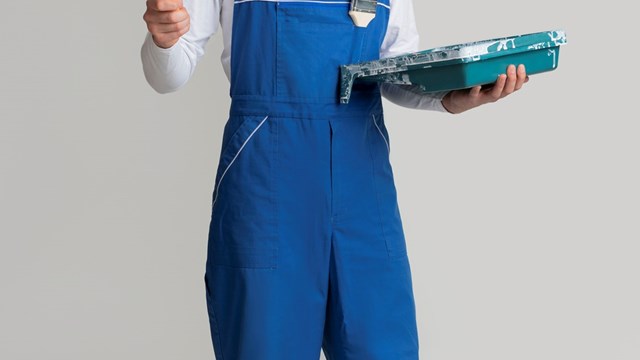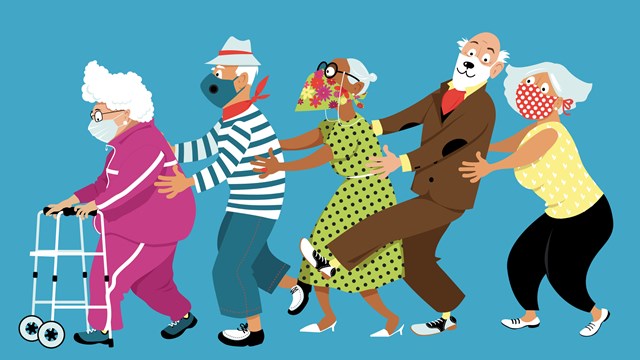
The COVID-19 pandemic has brought unique and challenging situations to each of us. Our cooperative and condominium clients, and their managing agents, have been working diligently to keep pace as this crisis unfolds. First and foremost, we hope that you and all of your families are safe and well.
We have been advising our clients on particular situations as they arise and will continue to be available to do so. Below are our thoughts on issues which have arisen repeatedly over the past few days. Of course, boards need to use their best judgment for their particular building. We are here to answer any questions you have.
Q. If a resident tests positive for COVID-19, or is self-quarantined, should we tell the other residents and staff?
A. Residents should be notified if the board or management receives notification that someone tests positive for COVID-19 in the building. However, the name and apartment number of the resident should not be disclosed to the other residents. If a board learns someone has decided to self-quarantine, the board should not disclose this. People self-quarantine for many reasons, and may not pose an immediate or imminent danger. Regardless of what the residents are told, they must continue to act appropriately: wash hands with soap often, use disinfectant on surfaces, and keep hands away from their mouth, nose, and eyes.
Q. Should employees make service calls inside apartments?
A. Before making a service call, staff is permitted to ask residents if they are sick or have been exposed to the virus. We believe that, rather than put staff in that position, the board may want to direct that all service calls be suspended. Emergencies must be dealt with individually.
Q. Can we ban all non-residents from the building?
A. It is very impractical to ban all non-residents. For example, a child might want to visit their elderly parent who lives alone. While boards may ban large gatherings, or limit the number of people who will be permitted into an apartment for an event, we have seen no such governmental guidelines which recommend limiting all guests to multifamily dwellings. However, encouraging residents not to invite non-residents into the building is certainly a sensible idea. As to banning certain non-residents (such as dog walkers, tutors, nannies, etc.), it certainly would be prudent, but boards must consider each on a case-by-case basis based on a number of considerations.
Q. Should our building immediately stop all renovation projects in the building?
A. We believe a board may have the right to stop renovations during this time, but doing so is not without risk. While a board could waive any monies to which it is entitled in its alteration agreement with the owner due to a delay in a project, the owner may have contracts with their contractor, be dependent on finishing a project so they can reside in the apartment, etc. Boards could be subject to damages for stopping projects and disrupting the lives of owners, especially if the board allowed other guests in the building or did not stop building-wide projects. As to building projects for which contracts have already been signed or that are legally mandated, we suggest you discuss the consequences with counsel before suspending operations.
Q. What should we do about deliveries?
A. We recommend that no delivery personnel be permitted past the entrance of the building and that in most cases residents pick up their packages or food packages in the lobby or outside of the building. If a resident has a delivery, a building staff member can leave the package outside of the apartment. For non-doorman buildings, the resident should be required to come down to the lobby of the building. Boards may have to permit access by a delivery person if a resident is sick or self-quarantined.
Q. Should we close our gym, pool, playroom, or other amenity?
A. Many localities have banned or curtailed use of indoor facilities such as gyms, baths, pools, and recreation centers. While private amenities in condos, HOAs or co-ops might not be subject to these restrictions, boards may wish to close all indoor amenity spaces at this time.
Q. What about open houses and brokers who want to show apartments or units?
A. We recommend open houses be paused during this time as they can bring large groups of people into the building and place an unnecessary burden on already busy staff. Boards may permit individual showings, but should require that those visits be scheduled with the resident manager or management in advance.
This advisory is offered as a service to clients and friends of Armstrong Teasdale LLP and The New England Condominium, and is intended as an informal summary of certain recent legislation, cases, rulings, and other developments. This advisory does not constitute legal advice or a legal opinion and is not an adequate substitute for the advice of counsel.






Comments
Leave a Comment